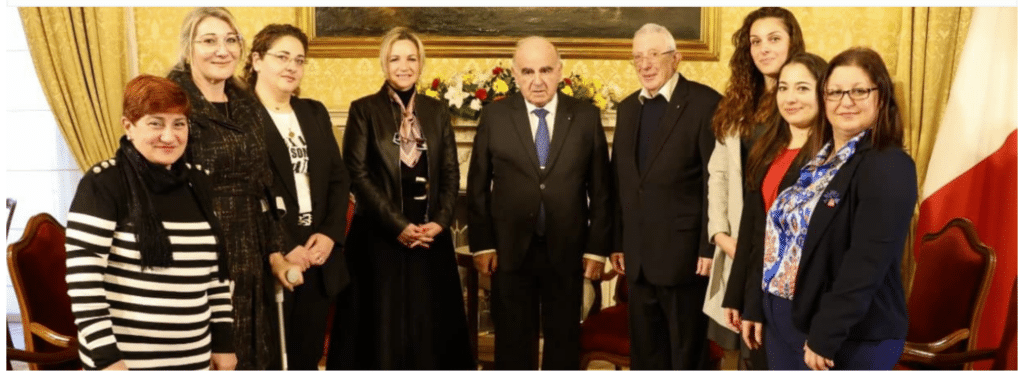Meeting with the President of the European Parliament
Members of the GYNOCARE Consortium met Dr Roberta Metsola, President of the European Parliament, in her visit at the Biomedical Sciences Building at the University of Malta. The research being carried out especially in the field of cancer was showcased during this visit to the labs. Click here to read the details of the visit of the President of the European Parliament.
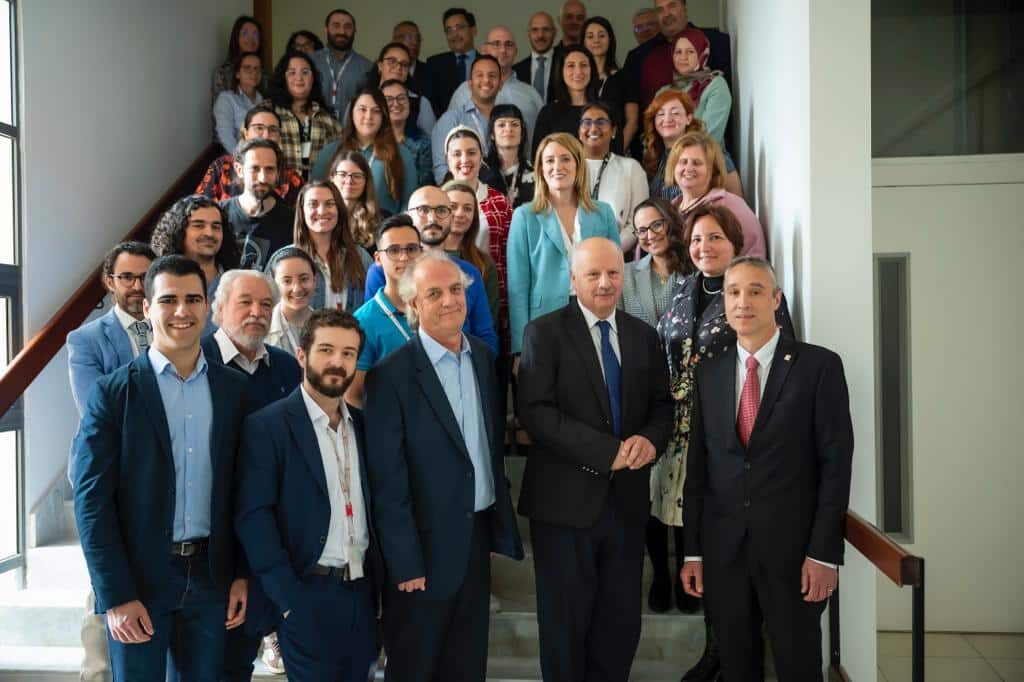
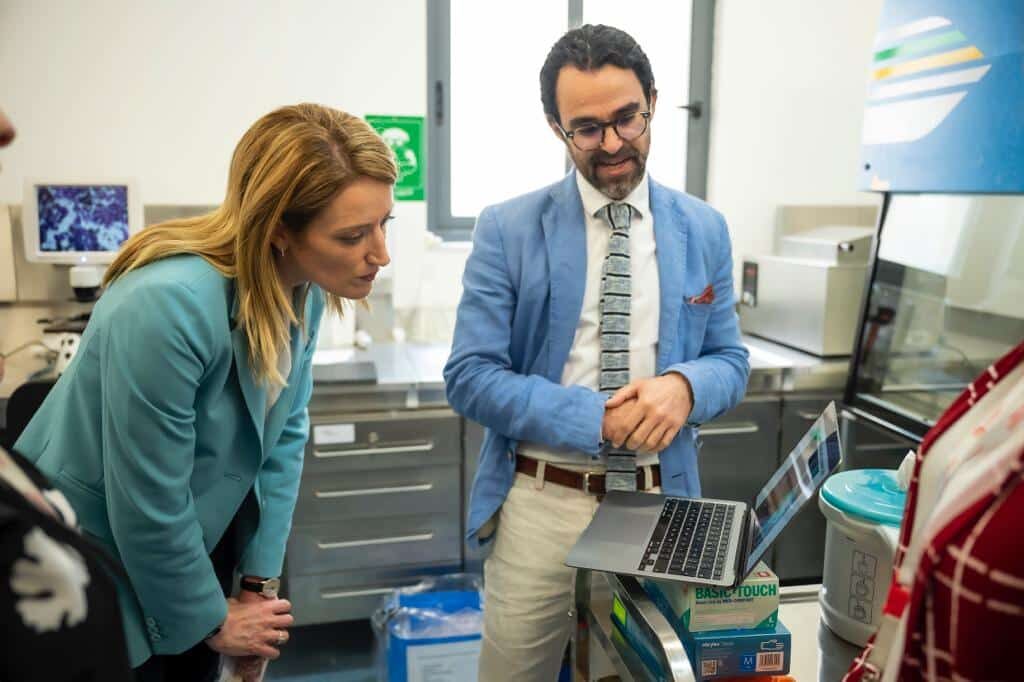
Cancer Symposium hosted by Her Excellency The President Emeritus of Malta
Prof Jean Calleja-Agius, Chair of the GYNOCARE COST Action was invited to deliver a keynote speech during the Cancer Symposium hosted by Her Excellency The President Emeritus of Malta, Dr Marie Louise Coleiro Preca. The title of this symposium was 'Cancer Research in Malta: From Biology to the Clinic'.
Click here in order to read the full speech delivered by Her Excellency, The President Emeritus on the occasion of this symposium.
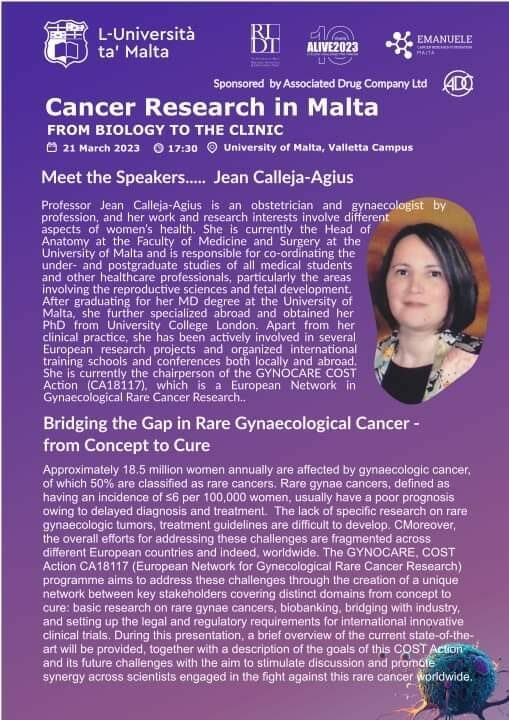
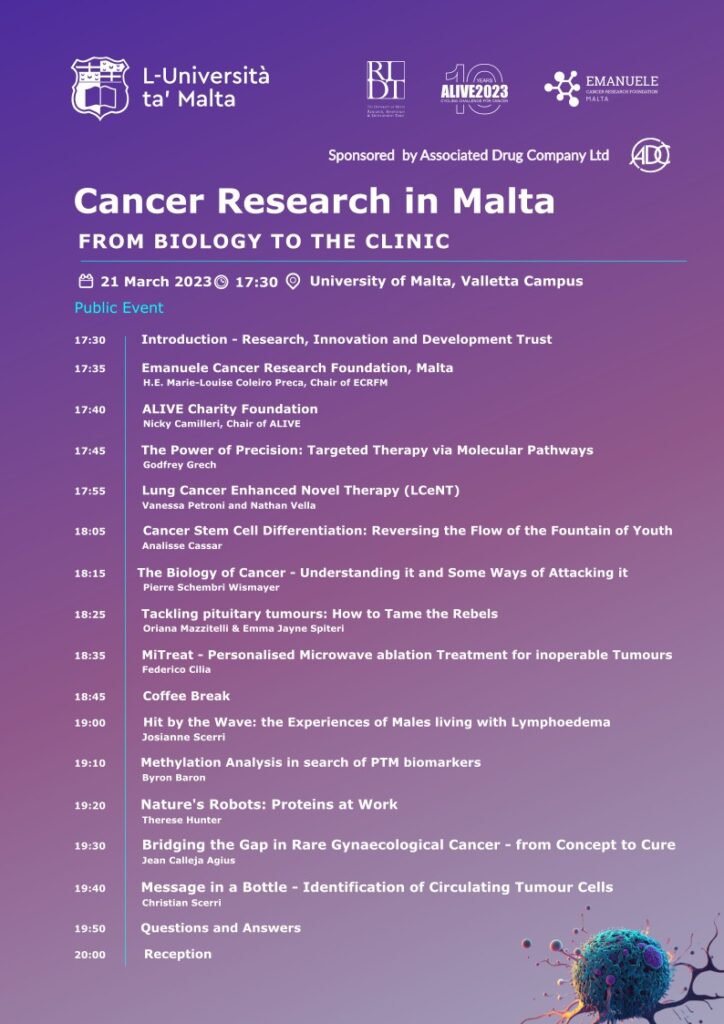
Member of Parliament of the Bulgarian National Assembly addresses GYNOCARE conference
During the GYNOCARE Conference entitled 'Our Battle for Better Health Care is Eternal' which was held at the Sofia University in Bulgaria in 2023, policy makers, politicians, and small and medium enterprises (SMEs) in biotechnology, pharmaceuticals and computer science were invited. These need to be involved in bridging the gap between basic and clinical research and their application in the development of a cost-effective roadmap dedicated to the fight against cancer, especially when this is rare. The role of digital health as well as the importance of accurate electronic medical records were discussed in detail by Dr. Alexander Simidchiev, Member of the National Assembly of Bulgaria and Head of Department of the Medical Institute MVR.
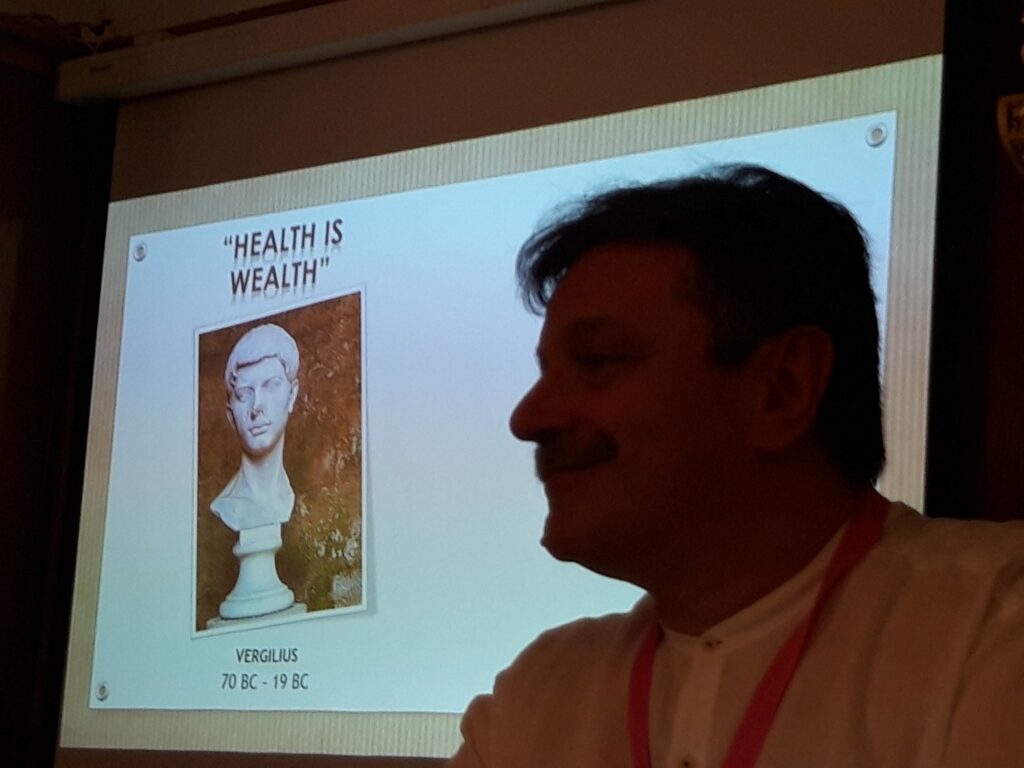
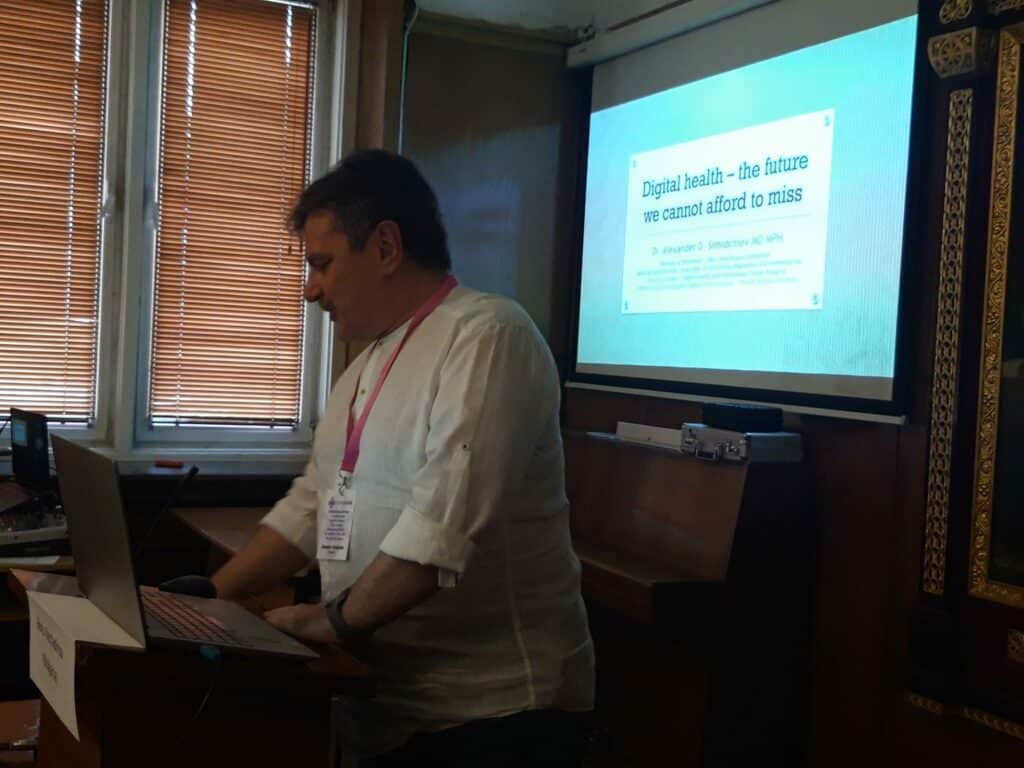
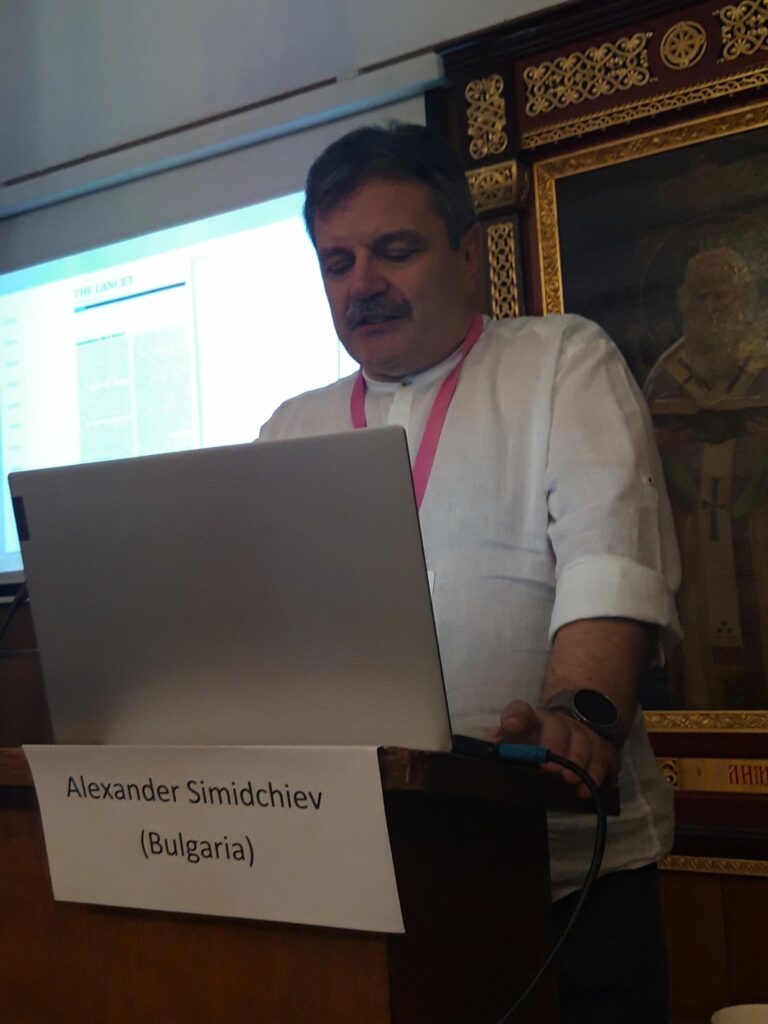
9th edition of the Annual Rare Disease Colloquium
On the occasion of World Rare Disease Day, the University of Malta’s Rare Disease Medicine Study Group, together with the National Alliance for Rare Diseases Support—Malta, held the 9th edition of the Annual Rare Disease Colloquium, titled ‘Advanced Projects in Rare Disease Medicine’ on the 6th March 2024. The colloquium aimed to create awareness about the 6,000+ identified rare diseases and the reality of living with them.
Hosted by the President of Malta, His Excellency Dr George Vella at San Anton Palace, and in the presence of Malta’s Minister for Health and Active Ageing, Hon. Dr Jo Etienne Abela, a number of medical experts, researchers, patient advocates, policy makers and industry representatives convened to exchange their invaluable insights with the rare disease community.
In his opening remarks, Prof. Alex Felice, from the University’s Faculty of Medicine & Surgery, spoke about the fact that some rare diseases are disproportionately high in the Maltese population, and that through whole genome sequencing, these could be detected and diagnosed at birth and treated immediately to prevent severe disability.
Prof. Jean Calleja-Agius, from the Department of Anatomy, Faculty of Medicine and Surgery, briefed the audience about GYNOCARE, which aims to bridge the gap between research and cure in rare gynaecological cancers.
Dr James Clark, from the Office of the Medical Director at Mater Dei Hospital, said Malta joined the 24 European Reference Networks (ERNs) as a National Coordination Hub in 2019 and this affiliation has proved to be a significant asset for our healthcare providers and patients alike in addressing the challenges posed by rare diseases.
Dr Joanna Vella from UM’s Department of Pathology explained mitochondrial diseases and the ongoing research to identify their cause.
Dr Miriam Dalmas from the Department of Policy in Health, from the Ministry for Health and Active Ageing focused on the ‘1+ Million Genomes’; (1+MG) initiative which aspires to allow protected access to genomics and the related clinical data across Europe for the purposes of engendering better research resulting in more personalised healthcare and corresponding health policy-making.
Prof. Constantinos Deltas from the University of Cyprus delivered a talk called ‘The Biobank of Cyprus and Opportunities for Next Generation Research Projects’.
